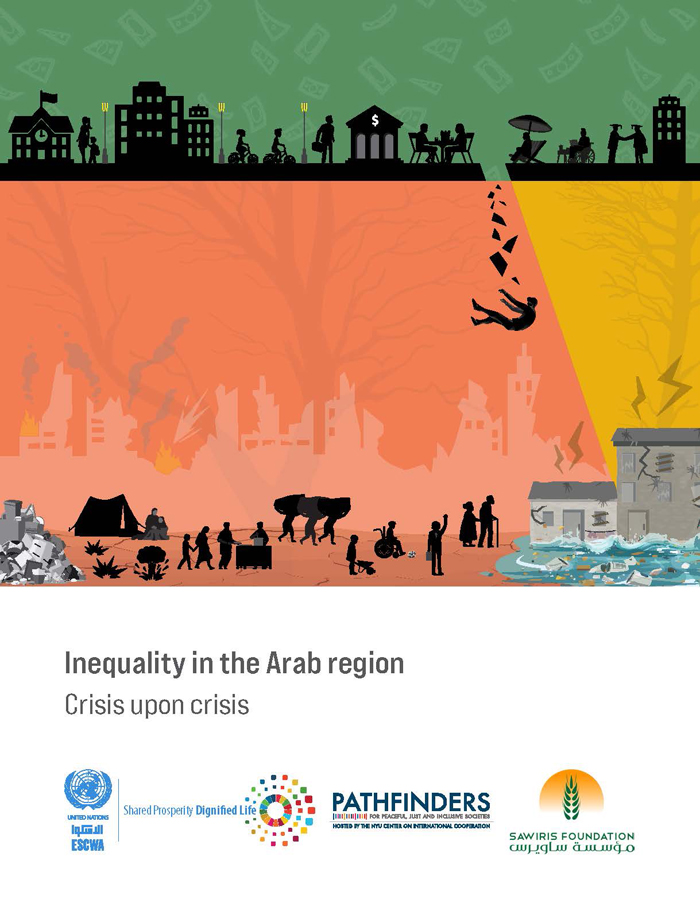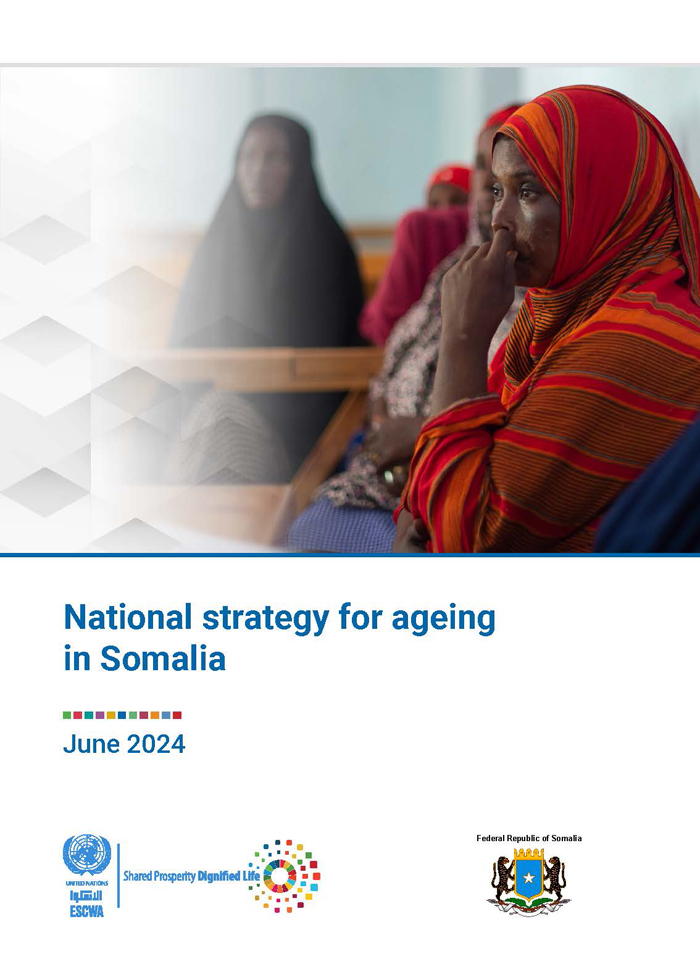
ESCWA Publication: E/ESCWA/CL2.GPID/2024/2
Country: Arab region, Kingdom of Bahrain, Lebanese Republic, Kingdom of Morocco, Republic of Yemen
Publication Type: Flagship publications
Cluster: Gender Justice, Population and Inclusive Development
Focus Area: Gender equality
Initiatives: Women’s rights and gender mainstreaming, Gender Justice and the Law
SDGs: Agenda 2030, Goal 5: Gender Equality
Keywords: Arab countries, Armed conflicts, Bahrain, Basic services, Case studies, Crisis management, Discrimination, Economic crisis, Equal opportunity, Equality, Government policy, Households, Humanitarian assistance, Income distribution, Lebanon, Middle-income countries, Military occupation, Morocco, Risk, Sustainable development, Yemen
Inequality in the Arab region: Crisis upon crisis
May 2024
In recent years, the Arab region has experienced a string of successive, overlapping and reinforcing crises, known as a polycrisis. Environmental, economic, institutional and conflict-related crises have interacted with each other to a devastating degree, resulting in detrimental effects on people’s access to social and economic services and opportunities. Not everyone, however, has been affected equally. Those who were already at risk of being left behind find themselves further behind their peers, as crises have accentuated inequality in all its forms and eroded the potential of social mobility.
This third edition of the Arab Inequality Report presents the growing risk of polycrisis in the Arab region since 2015. It introduces a novel way to capture inequality in all its forms, through a new multidimensional inequality framework. It also highlights the positive correlation between multidimensional inequality and the risk of polycrisis. Yet, polycrises and high multidimensional inequality are not inevitable. The report concludes with concrete and practical policy recommendations for countries to protect equality in times of crisis. In particular, the report calls for immediate humanitarian assistance in the face of crises, without political implications, and innovative financing mechanisms that enable more vulnerable countries to pursue sustainable socio-economic development and leave no one behind.
Inequality in the Arab region: Crisis upon crisis: Key messages
Related content
Gender equality
,
In recent years, the Arab region has experienced a string of successive, overlapping and reinforcing crises, known as a polycrisis. Environmental, economic, institutional and conflict-related crises have interacted with each other to a devastating degree, resulting in detrimental effects on people’s access to social and economic services and opportunities. Not everyone, however, has been affected equally. Those who were already at risk of being left behind find themselves further behind their peers, as crises have accentuated inequality in all its forms and eroded the potential of social mobility.
This third edition of the Arab Inequality Report presents the growing risk of polycrisis in the Arab region since 2015. It introduces a novel way to capture inequality in all its forms, through a new multidimensional inequality framework. It also highlights the positive correlation between multidimensional inequality and the risk of polycrisis. Yet, polycrises and high multidimensional inequality are not inevitable. The report concludes with concrete and practical policy recommendations for countries to protect equality in times of crisis. In particular, the report calls for immediate humanitarian assistance in the face of crises, without political implications, and innovative financing mechanisms that enable more vulnerable countries to pursue sustainable socio-economic development and leave no one behind.
Inequality in the Arab region: Crisis upon crisis: Key messages



